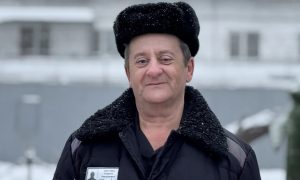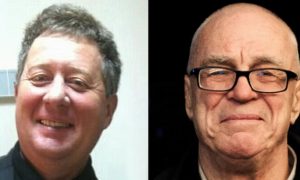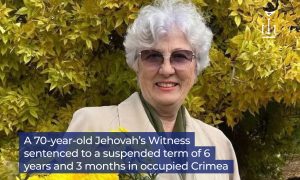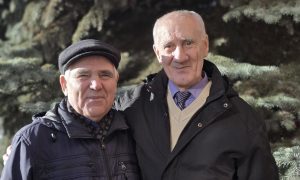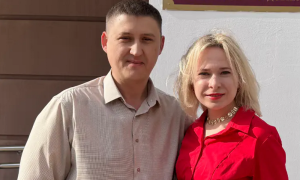A court in the city of Volgograd in southwestern Russia sentenced Jehovah’s Witnesses to more than 6 years in prison each on extremism charges Thursday, the religious organization said in a statement.
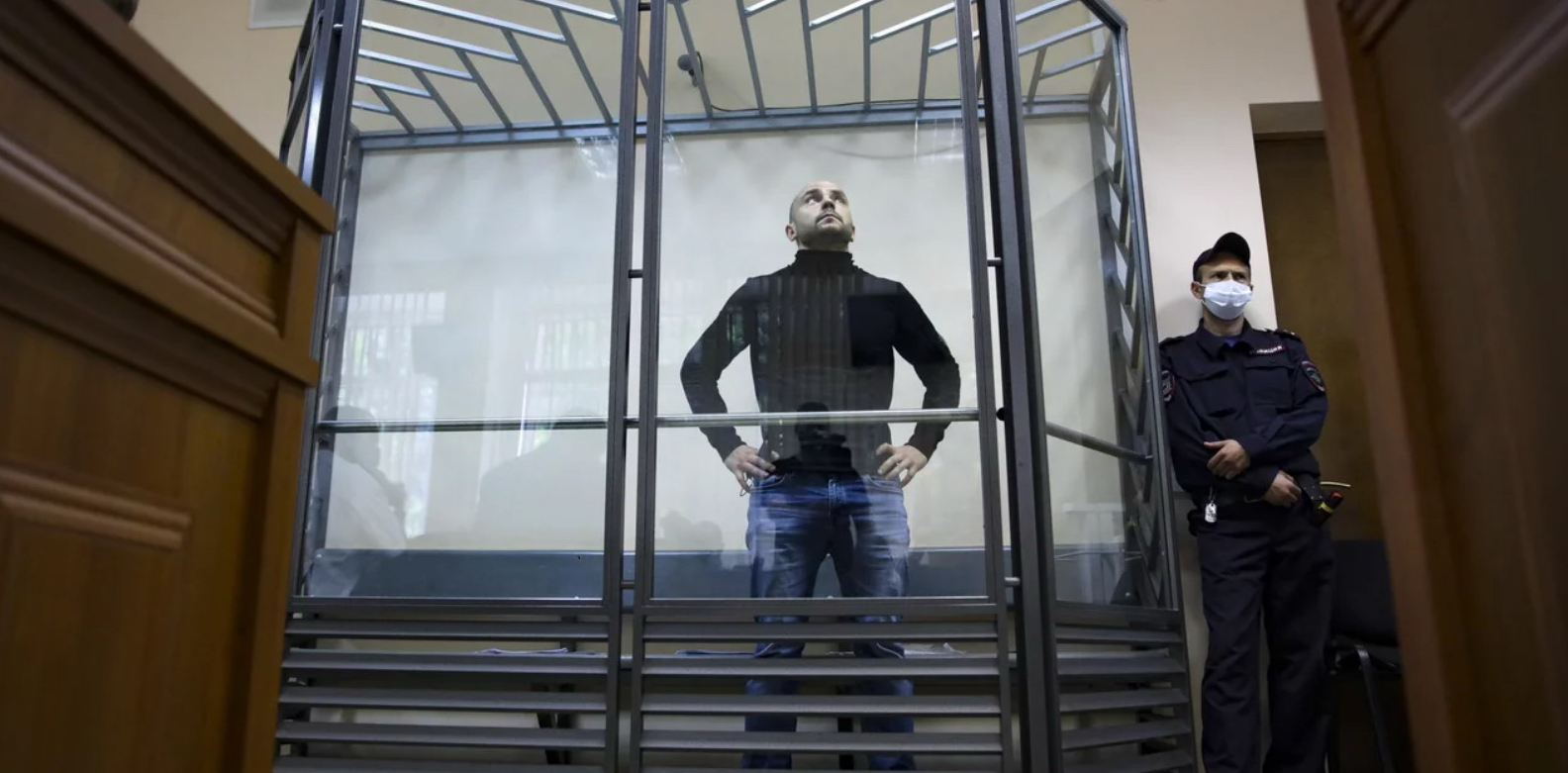
The Traktorozavodsky district court sentenced Valery Rogozin to 6 years and 5 months, Igor Yegozaryan and Sergei Melnik to 6 years, and Denis Peresunko to 6 years and 3 months “for praying and discussing the Bible with fellow believers.”
Prosecutors had asked judge Iryna Struk for 9- and 7-year sentences for the worshippers.
The latest convictions bring the total number of Jehovah’s Witnesses handed prison sentences to 39 since Russia’s Supreme Court declared the Christian denomination extremist in 2017. Another 56 worshippers are currently in prison awaiting sentencing, 31 are under house arrest and a total of 541 have faced persecution, according to the organization’s tally.
“Jehovah’s Witnesses are peaceful, politically neutral people,” said Valery Rogozin, 59, in his last words in court. “We learned from the Bible that only God can deal with all of humanity’s problems.”
Other defendants echoed his statement, with Melnik, 49, saying “I have tried to do good, to show love and justice, to take care of people” and Peresunko, 43, noting “I am being judged because I learned the truth that is in the Bible and discussed it with my friends.”
“The whole world says that Jehovah’s Witnesses cannot be extremists, that they are pacifists, that they do not take up arms and never speak against the state, they do not interfere in politics,” said Yegozarian, 56.
Investigators in 2019 upgraded the worshippers’ criminal charges from “participating” to “organizing” an extremist community, which allowed for longer prison terms for them.
Witnesses for the prosecution accused investigators of falsifying their testimony, according to the organization.
“Their preliminary testimony contained words they had not said. One of them explicitly stated that the investigator had ‘made up and edited’ her testimony,” it said.
The Jehovah’s Witnesses organization added that a witness they said was interrogated incognito accused the believers of “spiritual terrorism,” while another said they had never heard the defendants “threaten, call for violence or overthrow the government.”
Extremist activity includes “propaganda of the exclusivity, superiority or inferiority of a person on the basis of his social, racial, national, religious or linguistic affiliation or attitude to religion” according to the language in the 2017 Supreme Court ruling.
“Dozens of ongoing and past trials of believers prove that there is not a single instance of actual harm to the state and society,” the Jehovah’s Witnesses said in the statement.
